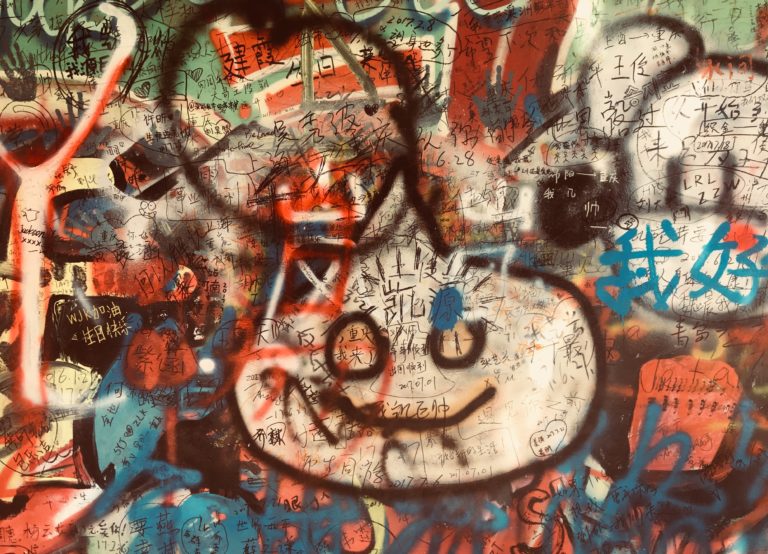I keep reading stuff in the news that reminds me of stuff I wrote a long time ago. My ego demands I put it here for my mom and friends to read, and agree with. Today’s example is an excellent essay by Dr. Christopher Ford, called Sinocentrism for the Information Age: Comments on the 4th Xiangshan Forum.
Here is the intro to the story:
“On November 15-18, 2012, Dr. Ford attended the 4th Xiangshan Forum in Beijing, an event sponsored by the International Military Branch of the China Association for Military Science of the Academy of Military Science of the People’s Liberation Army (PLA). The paper he presented to this conference appears on NPF and on the Hudson Institute website. Below, however, appears a follow-up essay based upon Dr. Ford’s experiences at the conference, where he served on a Roundtable discussion group focused upon strategic mutual trust.”
So what did Dr. Ford experience? In the clear, polite, yet piercing language of the consummate professional Dr. Ford describes nothing more than Chinese generals demanding everyone in the world shut up and do what China says with regard to any and all issues that have even the slightest relation to China. I can just imagine everyone at the “Roundtable” trying to control their anger, shaking their heads at Chinese bombasticism, and trying their best to use logic and “facts” to convince these generals that there may be an alternative view of reality that they have not yet considered.
Reminds me of a dinner I once had with an Air Force colonel, his family and friends, and Luna. The colonel was Luna’s “uncle” and I was her “foreign friend” – I shudder to think of what the two of us had in common. Whatever we did have in common re: Luna would remain the only bridge to cross, due to entrenched political views on his side and imperialist lies on mine. Naturally, crossing the only bridge between us was unthinkable. In fact, Luna kept her head down for the entire dinner.
Long story short, Colonel Tight-britches said that the US had never won a war in Asia, that any attempt to do so would end the same way the Korean War had (Total Defeat and Humiliation at the Hands of the Chinese), and that in order to avoid utter defeat, the US had better recognize the wisdom inherent in all Chinese due to 5,000 years of continued, unbroken, glorious civilization and just get with the program.
The Program being, in summary: acknowledge China as Master and move within a worldview that establishes said acknowledgement as the basis for any and all interaction.
That happened way back in 2005 or so. Around the same time I wrote this, in response to an article written in the Asia Times by Yu Bin:
“Yu Bin’s recent article for Asia Times Online is a very Sinocentric view of the growing pains East Asia will face as the region grows increasingly more influential and substantially richer. Yu Bin goes into three major problems: China’s relationship with its own poor and underemployed, China’s relationship with Japan, and China’s relationship with Taiwan. Again, with rather Sinocentric suggestions for how these problems could be best solved.
Although a Chinese-style solution to the problems – namely calm acceptance of the inevitable peaceful rise to leadership of East Asia’s largest nation – would be splendid if it ensured peace and stability and prosperity for all, it is quite uncertain whether or not China can handle East Asia’s affairs any better than it handles its own.”
Point being: the more things change the more they stay the same. Indeed, Dr. Ford himself considers China’s attempts to control the narrative as nothing new, or unplanned, but a tried-and-true strategy for achieving and maintaining political and diplomatic dominance:
“[Ford’s experience] … suggests that there is nothing at all anomalous about a range of otherwise seemingly idiosyncratic PRC demands in recent years, including calls for Western governments to prohibit “biased” coverage of the PRC in domestic Western media, the insistence that a small town in Oregon destroy a privately-painted wall mural sympathetic to the cause of Tibetan and Taiwanese independence, Beijing’s angry complaints every time anyone has any dealings with the Dalai Lama or gives a prize to a Chinese whose political views are not approved by PRC authorities, its indignant reaction to the “lack of balance” in a recent publication from the Australian National University, its harassment of Western media organizations that tell their readers about corruption in the Chinese elite, and the above-listed agenda related to Japanese domestic politics and administration.
I once assumed that most such things were simply an uncoordinated, unsystematic prickliness bespeaking merely Beijing’s ongoing insecurity in the modern world and the crudely propagandistic reflexes of the Chinese Party-State. And I had assumed that the “non-interference” theme in PRC diplomatic discourse was simply a propaganda trope intended to be alternatively invoked or ignored with opportunistic and often hypocritical cynicism.
My dealings with PLA officials at the Xiangshan Forum, however, suggest a possible (and more interesting) alternative explanation. Beijing’s various idiosyncrasies in these regards may be, in meaningful part, the relatively coherent and consistent outgrowths of a conceptual framework – an Information Age twist, if you will, on much older themes of Sinocentric moralism – in which the emerging Chinese superpower hungers to control other peoples’ narrative of China.”
In high school our history teacher, Mr. Coswell – who doubled as our football coach, which actually suited his massive frame and plodding dictation much better than teaching history – informed us that China suffers from “ethnocentrism.” That’s right, in 9th grade, at Bishop Grimes High School in Syracuse, NY, the history of China was framed for impressionable kids like me as a study in racist arrogance.
To Mr. Coswell’s credit, I have found cultural (which, let’s face it, is often swapped for racial) arrogance to be a hallmark of Sino-World discourse. On both sides. The world is trying to move away from that, I believe that truly, despite Anglo-Saxon/European attempts to derail the trend toward multiple (equal?) poles in the world. China, however, has not received the memo.
China may never receive that memo; just like the US may never see fit to spend less on weapons. It’s cultural you see, for Chinese to see themselves as the fount of Asian culture (which, in many many cases, they were), and allowing these “little brothers” to talk back to the father will never really be accepted. Ford mentioned the “rectification of names” as a possible entry path into Chinese thinking about its own place in the world, and I see no reason why not.
It helps to explain why intelligent humans in 2013 can claim territory based on the phrase “since ancient times” and then demand that those who have forgotten open their books and rectify any erroneous beliefs. A great essay by Dr. Ford. Western diplomats should be aware of powerful Sinocentric ideas when they deal with high-level Chinese officials, especially PLA people.
I think it would be interesting to hear what Xi et al say about Dr. Ford’s observations, because, as I learned during my dinner with the Colonel, military men are at their best when they’re destroying bridges.






